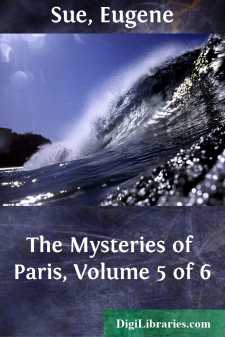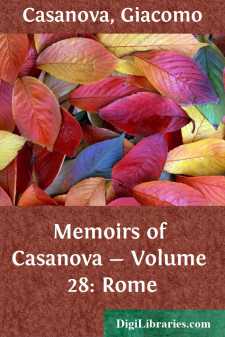Categories
- Antiques & Collectibles 13
- Architecture 36
- Art 48
- Bibles 22
- Biography & Autobiography 813
- Body, Mind & Spirit 142
- Business & Economics 28
- Children's Books 17
- Children's Fiction 14
- Computers 4
- Cooking 94
- Crafts & Hobbies 4
- Drama 346
- Education 46
- Family & Relationships 57
- Fiction 11829
- Games 19
- Gardening 17
- Health & Fitness 34
- History 1377
- House & Home 1
- Humor 147
- Juvenile Fiction 1873
- Juvenile Nonfiction 202
- Language Arts & Disciplines 88
- Law 16
- Literary Collections 686
- Literary Criticism 179
- Mathematics 13
- Medical 41
- Music 40
- Nature 179
- Non-Classifiable 1768
- Performing Arts 7
- Periodicals 1453
- Philosophy 64
- Photography 2
- Poetry 896
- Political Science 203
- Psychology 42
- Reference 154
- Religion 513
- Science 126
- Self-Help 84
- Social Science 81
- Sports & Recreation 34
- Study Aids 3
- Technology & Engineering 59
- Transportation 23
- Travel 463
- True Crime 29
Sort by:
CHAPTER I—THE NÜ-CHÊNS AND KITANS The Manchus are descended from a branch of certain wild Tungusic nomads, who were known in the ninth century as the Nü-chêns, a name which has been said to mean "west of the sea." The cradle of their race lay at the base of the Ever-White Mountains, due north of Korea, and was fertilised by the head waters of the Yalu River. In an illustrated Chinese work...
more...
by:
Jeannie Gunn
CHAPTER I To begin somewhere near the beginning, the Maluka—better known at that time as the new Boss for the Elsey—and I, his "missus," were at Darwin, in the Northern Territory, waiting for the train that was to take us just as far as it could—one hundred and fifty miles—on our way to the Never-Never. It was out of town just then, up-country somewhere, billabonging in true...
more...
Chapter First. Mr. Duncan's Discontentment. He starts for the West. Near the Cold Springs, in Lafayette county, Missouri, lived Mr. Duncan, a sturdy woodsman, who emigrated thither with his father, while the Mississippi valley was still a wilderness, inhabited by wild beasts, or the still more savage Indians. His grandfather was an eastern man; but had bared his brawny arm on many a battle field,...
more...
by:
Rene Descartes
PART I Good sense is, of all things among men, the most equally distributed; for every one thinks himself so abundantly provided with it, that those even who are the most difficult to satisfy in everything else, do not usually desire a larger measure of this quality than they already possess. And in this it is not likely that all are mistaken the conviction is rather to be held as testifying that the...
more...
PREFACE. A few words by way of Preface are requisite, in order that the objects of the present Work may be stated to the reader, and that he may also be made acquainted with the sources whence the information here communicated is derived, and from consulting which he may still further inform himself concerning Australia. The aim of the writer of the following pages has been,—while furnishing a...
more...
Like the love of music, books and pictures, the love of gardens comes with culture and leisure and with the ripening of the home life. The love of gardens, as of every other beautiful and refining thing, must increase to the end of time. More and more must the sympathies enlarge. There must be more points of contact with the world. Life ever becomes richer. Gardening is more than the growing of plants:...
more...
by:
Noah Davis
CHAPTER I. Early Life in Virginia--Example of Pious Parents. I was born a slave, in Madison county, Virginia, March, 1804. My father, John Davis, and his family, belonged to Robert Patten, Esq., a wealthy merchant, residing in Fredericksburg--who was also owner, in connection with Mr. John Thom, of a large merchant mill, located on "Crooked Run," a stream running between Madison and Culpepper...
more...
by:
Eugene Sue
CHAPTER I. THE PRESENTATION. A few days after the murder of Madame Séraphin, the death of the Chouette, and the arrest of the gang of desperadoes taken by surprise at Bras-Rouge's house, Rodolph paid another visit to the house in the Rue du Temple. We have already observed that, with the view of practising artifice for artifice with Jacques Ferrand, discovering his hidden crimes, obliging him to...
more...
by:
Giacomo Casanova
As I fell over the Englishman I had struck my hand against a nail, and the fourth finger of my left hand was bleeding as if a vein had been opened. Betty helped me to tie a handkerchief around the wound, while Sir B—— M—— read the letter with great attention. I was much pleased with Betty's action, it shewed she was confident, and sure of her lover's forgiveness. I took up my coat and...
more...
CHAPTER I. PERSONAL SKETCH OF GEORGE BIDDELL AIRY. The history of Airy's life, and especially the history of his life's work, is given in the chapters that follow. But it is felt that the present Memoir would be incomplete without a reference to those personal characteristics upon which the work of his life hinged and which can only be very faintly gathered from his Autobiography. He was of...
more...











